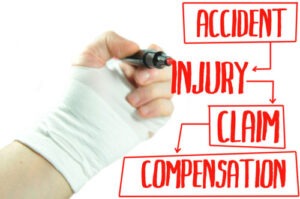
Losing a loved one leaves a gaping hole in both your life and, in many cases, your finances. Do you have the right to file a wrongful death lawsuit? A wrongful death suit can provide financial compensation for the loss of your loved one, offering coverage for bills accumulated as a result of that loss as well as providing vital financial assistance as you learn how to manage your home and your finances without your loved one.
Many people, however, struggle to decide if they have the right to file a wrongful death suit after losing a loved one. Talking with a wrongful death lawyer can help you decide whether you can and should file a wrongful death suit after losing a loved one in an accident, including a motor vehicle accident.
How Did Your Loved One Die?
When your loved one dies in a motor vehicle accident, for example, you may find yourself wondering if you have grounds for a wrongful death suit. You may already have received payment for damages done to your loved one’s vehicle in the accident. A wrongful death suit, however, offers coverage for more than just the car.
If your loved one died as a result of someone else’s negligence on the road, you may have grounds for a wrongful death suit. If your loved one could have filed a personal injury lawsuit had they lived, you likely have grounds for a wrongful death claim after your loved one’s death.
It does not matter if your loved one died immediately, at the scene of the accident, or passed away later as a result of their injuries. Even if your loved one lingered for days or weeks before dying, you may still have grounds for a wrongful death claim if the car accident caused the injuries that ultimately claimed their life. This includes a loved one who died of an infection following injuries sustained in a car accident, a loved one who received severe organ damage and later died as a result of that damage, or a loved one who died during surgery they needed to repair the damage done by the accident.

Expect More, Receive More: Legal Support That Feels Like Family
What Is Your Relationship to the Deceased?
You lost a loved one in an accident. That does not immediately give you the right to file a wrongful death suit. Typically, the deceased person’s immediate family has the right to file a wrongful death suit against the person who caused the accident. The victim’s immediate family may include:
- The deceased’s spouse;
- The deceased’s children;
- Parents of a deceased minor child; and
- Parents of a deceased adult child who provided support for those parents.
In some cases, other individuals who received physical or financial support from the deceased may also have grounds for a wrongful death claim. For example, if the deceased provided care and financial support to an elderly aunt, leaving her without necessary support after his death, she may have grounds for a wrongful death claim.
A partner who lived with the deceased and shared financial responsibilities and physical companionship, despite not being married, may, in some cases, have grounds to file a wrongful death claim after losing that individual. If you believe you have grounds for a wrongful death claim, you may want to consult with a lawyer to better understand your rights following the loss of your loved one.
How Many People Can File a Wrongful Death Claim?
After an accident resulting in death, you can file only one wrongful death claim per deceased individual. It does not matter if multiple individuals have the right to claim compensation for the loss of a loved one; the insurance company will issue only one wrongful death payment. The deceased person’s family must then decide how to allocate those funds. Typically, close family members have the first right to file a wrongful death claim. If one family member accepts a settlement offer, it usually prevents other family members from filing a future claim.
What Can You Include in a Wrongful Death Claim?
In addition to understanding who can file a wrongful death claim, you also need to understand what you can include in your claim. The funds you can receive for the loss of your loved one will vary: some insurance policies offer a higher rate of coverage than others. If multiple people died in the same car accident, you may also find that the insurance company has a cap for how much it will pay out for everyone involved in the accident, even if many lives were lost. However, many people include similar elements in their wrongful death claims, described below.
Pain and Suffering Experienced by the Deceased Before Death
Sometimes, car accidents claim lives immediately, or at least within a very short span of time. In other cases, however, a car accident may cause injuries that ultimately end in death, but that, in the meantime, cause your loved one substantial pain and suffering. You can include that pain and suffering as part of your claim.
Medical Bills Acquired Before Death
Even if your loved one died in the hours immediately after the accident, you may have substantial medical bills to cover. An ambulance ride to the hospital, emergency room treatment, and emergency surgery can all add up fast, leaving you with thousands of dollars in medical expenses to cover after your loved one’s death. Many people choose to include those expenses in their wrongful death claims.
Loss of the Deceased’s Income
If the deceased was the primary wage earner for your family, you may quickly feel the financial pinch of their loss. Immediately after your loved one’s death, that source of income stops. You must find new ways to pay the bills—many of which do not decrease after your loved one’s death.
Including the loss of the deceased’s income as part of your wrongful death claim may not allow you to live without worry for the rest of your life, but it can provide a source of funds to pay the mortgage, keep the lights on, and handle other basic expenses while other adults in the family look for a new job or find a way to cover the bills. Often, these funds can also provide the means for a surviving spouse to go back to school or to pursue other job training that will make it possible to acquire a new job that will provide for the family’s needs.
Even losing the income of a partner who was not the primary wage earner in the family can cause significant financial difficulty, especially if that partner took care of specific bills or paid for specific aspects of family life. Damages awarded after a wrongful death claim can help you better take care of those expenses while you create a new budget and plan.
Loss of Services Provided by the Deceased
In addition to providing financial support for the family, many people provide a wide range of services for their household. Some of those services the family may not even recognize until that person can no longer provide them; however, the cost of replacing those services often adds up fast for the family, especially if no one else can step forward to provide those services. These may include:
- Lawn care. The average cost of minor lawn care—keeping the lawn mowed every week—can cost a family almost $30 each week for a half acre lot. The larger the lot, the greater the cost of lawn care. Taking care of more extensive services like tree removal or maintaining gardens is even more expensive.
- Vehicle maintenance. Taking vehicles in for an oil change adds up much faster than changing the oil on that vehicle at home. Not only that, the cost of even minor vehicle repairs can result in $80 to $100 per hour in labor charges. After losing a loved one who was responsible for taking care of vehicle maintenance, many families have no choice but to take vehicles to a shop—which can lead to substantial expenses, especially for vehicles that require regular maintenance to keep them running smoothly.
- Childcare. With two parents in the home, one parent can often stay home with the children. Sometimes, this responsibility falls on a single person; other times, parents work different shifts so that one of them can always stay home and provide care for the children. Following the death of one spouse, however, the other spouse cannot both work and care for the children at home. In Florida, the average cost of infant care is more than $700 per month. Families with multiple young children may find the cost of childcare prohibitive.
- Home cleaning. Keeping the house clean and tidy often falls to one member of the family—and it can get expensive quickly when, after losing a loved one, you must pay someone else to take care of those responsibilities for you. Maid services can cost between $50 and $90 per hour. Depending on the size of the home, homeowners may pay for several hours of cleaning to have the house cleaned thoroughly. While some people can get by with biweekly cleaning, other families may need to bring in cleaners more often to keep the house in a good condition.
- Care for elderly relatives. Often, family members take on caring for elderly relatives who cannot care for themselves. Early on, this may simply mean visits to the elderly person’s home to take care of cleaning or cooking a few times a week. As the relative gets older or has more medical problems, on the other hand, family members may need to provide constant care. The loss of a family member who provided that care may lead to the need for expensive in-home care services or require an elderly family member to move to a nursing home sooner as a result of that loss. In-home care costs an average of $20 per hour, with some care providers requiring a minimum daily or weekly stay.
- Cooking. When you lose the primary cook in your family, the family still has to eat. Going out to eat can run $15 per family member per meal at an average sit-down restaurant; eating fancier meals, especially home-cooked meals (or going to a place that will convince the kids to eat their vegetables) can increase those costs.
Loss of Companionship, Guidance, and Nurturing
When you lose a loved one, your entire family loses the companionship that individual provided. For the surviving spouse, this can mean the loss of comfort and companionship provided by a marriage relationship. Many spouses choose to include loss of consortium, or the loss of the sexual relationship with the deceased, as part of a wrongful death claim. Surviving children lose the wisdom and advice offered by a parent at any stage of life, while parents who lose their children lose the companionship of that child and their plans for the next generation. Including loss of companionship in a wrongful death claim cannot replace the companionship lost at your loved one’s death, but it can offer funds that will help you rebuild your life.
Do You Have Grounds for a Wrongful Death Claim?
When you lose a loved one in a car accident or in some other accident caused by another person’s negligence, you may need to file a wrongful death claim to help recover some of the financial damages resulting from that loss. Those funds cannot replace your loved one, but they can make it easier to pay the bills, take care of household responsibilities, or finance necessary job training that makes it possible for you to take care of your financial needs after your loved one’s death. If you lost a loved one due to someone else’s negligence, contact a lawyer as soon as possible to discuss whether you have grounds for a wrongful death claim and what you should include in that claim.






